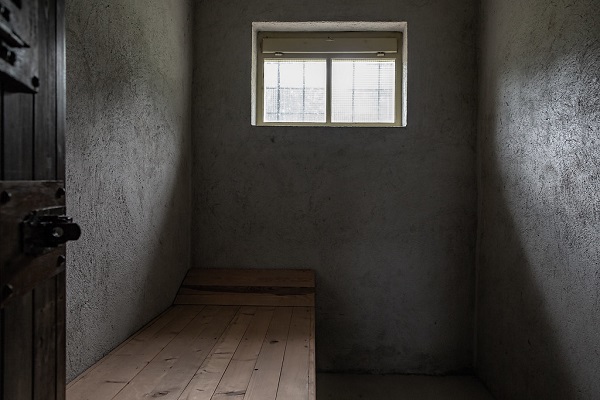FWP:
SETS == KYA
BONDAGE: {1,5}
MADNESS: {14,3}
Nazm is right to emphasize the enjoyable wordplay between 'to be imprisoned' and 'to be released, to be let go.' The Advisor's putting the mad lover in prison doesn't mean much, because the lover will never 'release' his grip on the manners, styles-- and airs and graces (see the definition above)-- of madness.
In fact, the lover plumes himself on his madness, he flaunts it the way a beautiful beloved flaunts her beauty. His being imprisoned does not discourage him-- it merely provides one more proof of how radically effective are his 'styles' of madness. In prison, he will be at leisure to clutch his madness to his bosom and cherish it as it deserves.
For more on sahī , see {9,4}.

Nazm:
kyā is to be taken as marking a negative question, and the combining of qaid honā [to be imprisoned] and chhūṭ jānā [to be released] is not without pleasure. (20)
== Nazm page 20